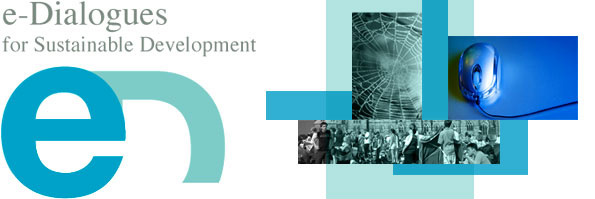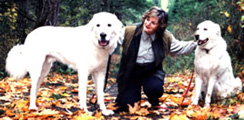|
Laura Ambrose, MSc., Ph.D. Candidate, Department of Biology, Luther College, University of Regina
Apurv Bhargava, MSc.,Ph.D. Candidate, Department of Biochemistry and Microbiology, University of Victoria
Kristen Brennand, BSc. (Hons.), A.M., Ph.D. Candidate, Department of Molecular and Cellular Biology, Harvard University
David Conrad, Ph.D. Candidate, Department of Microbiology & Immunology, Dalhousie University
Jamie Doyle, MSc., PBiol, PMP, Senior Project Manager, Jacques Whitford Environment Limited
Negar Elmieh, MS., MPH., Ph.D. Candidate, Institute of Resources, Environment and Sustainability, University of British Columbia
Hubert Fortier, MSc., Ph.D. Candidate, Department of Chemistry Dalhousie University
Heather Hannah, D.V.M., MSc., Environmental Epidemiology, Colorado State University
Scott Harding, MSc., Ph.D. Candidate, School of Dietetics and Human Nutrition, McGill University
Huda Henry-Riyad, MSc., Ph.D. Candidate, Department of Chemistry, University of Toronto
Alain Joseph, MSc.,Ph.D. Candidate (interdisciplinary), School of Resource Environmental Studies, Dalhousie University
Rob Joseph, BSc., Ph.D. Candidate , Department of Microbiology & Immunology , Dalhousie University
Genevieve Labbe, BSc., MSc., Ph.D. Candidate, Department of Chemistry, University of Waterloo
Adam La Rusic, P.Eng, Special Projects Engineer, Environmental Protection Branch, Environment Canada
Jiun-Ni Lui, BSc., MSc, Ph.D. Candidate, Nutritional Toxicology, McGill University
Adam Mott, BSc. (Hons.), Ph.D. Candidate, Department of Immunology and Infectious Diseases, Harvard University
Jeff Powell, Ph.D. Candidate, Fungal and Soil Ecology Lab, Department of Botany, University of Guelph
Kirthi Robert, BSc., MASc., Ph.D. Candidate, Institute of Resources, Environment and Sustainability, University of British Columbia
Krystal Rypien, Ph.D. Candidate, Department of Ecology & Evolutionary Biology, Cornell University
Corwin Sullivan, BSc. (Hons.), MSc., Ph.D. Candidate, Department of Organismic and Evolutionary Biology, Harvard
Neil Surry, MSc., Senior Environmental Mediator, DRSystems Inc
Mireille Vega, Ph.D Candidate, Department of Food Science and Agricultural chemistry, McGill University
Sonia Wesche, MSc., Ph.D. Candidate, Department of Geography & Environmental Studies, Wilfrid Laurier University
| Readings |
Public Policy Forum Report |
|
|
| On-Line Readings |
|
Note: EBSCOhost (http://www.epnet.com/ ) offers fulltext and bibliographic databases online. EBSCOhost requires a subscription, and is subscribed to by many libraries. If you are a Royal Roads University learner or staff, you can access EBSCOhost at: http://library.royalroads.ca/ - Search for Articles link.
Nyquist, J. 2002. The Phd: a tapestry of change for the 21st century. Change.
http://www.findarticles.com/cf_0/m1254/6_34/94129279/p1/article.jhtml
|
| Books & Articles |
|
|
Ben-David, Joseph. 1971. The scientist’s role in society. Englewood Cliffs.
Boix Mansilla, V., Gardner, H., Miller, W. 1999. On disciplinary lenses and interdisciplinary work. In: P. Grossman & S. Wineburg (Eds.). Disciplinary Encounters. New York: Teachers College Press.
Dickens, P. 2003. Changing our environment, changing ourselves: critical realism and transdisciplinary research. Interdisciplinary Science Reviews, Vol. 28, No. 2. p 105 (pdf).
Elsof, L. 2003. Technological Education, Interdisciplinarity, and the Journey Toward Sustainable Development: Nurturing New Communities of Practice. Brock University 21 pp (pdf).
Epton, S. R., Payne,R.L., Pearson, A.W.(eds) 1983. Managing interdisciplinary research. Chichester: John Wiley & Sons.
Funtowicz, S.O., Ravetz, J.R. 1994. Uncertainty, Complexity and Post-Normal Science. Environmental Toxicology and Chemistry, Vol 13, No. 12, pp. 001-005.
(pdf).
Funtowicz, S., Ravetz, J.R. 1993. Science for the Post-Normal Age. Futures, Vol 25, p 735-755.
Galison, P., Stump, D. J. 1996. The Disunity of Science. Boundaries, Contexts, and Power. Stanford: Stanford University Press.
Gardner, H. 1999. The Disciplined Mind: What All Students Should Understand. New York: Simon & Schuster.
Klein, Julie Thompson. 1996. Crossing Boundaries: Knowledge, Disciplinarities, and Interdisci-plinarities. Charlottesville: University Press of Virginia.
Laudel, G. 2001. Collaboration, creativity and rewards: why and how scientists collaborate. International Journal of Technology Management. Vol 22, pp762-781.
Nowotny, H., Scott, P., Gibbons M. (2001). Re-Thinking Science. Knowledge and the Public in an Age of Uncertainty. Cambridge: Polity Press.
Polikarov, A. 1995. Concerning the Integration of Sciences: Kinds and Stages’. Journal of General Philosophy of Science, V26, pp 297-312.
Moran, J. 2002. Interdisciplinarity. London: Routledge.
Ravetz, J. 1999. What is Post-Normal Science? Futures. Vol 31, p 647-654.
Smith, J., Snidery, S., 1998. Facing the Challenge. Recruiting the Next Generation of University Graduates to the Public Service. The Public Policy Forum. The Public Service Commission of Canada. Ont. 97 pp.
Stehr, N., Weingart, P. 2000. Practising interdisciplinarity. Toronto: University of Toronto Press.
Wynne, B. 1996. Misunderstood misunderstandings: social identities and public uptake of science. In Irwin,. A., Wynne B., (eds) Misunderstanding science? Cambridge UP. p 19-46.
|
| Websites |
|
|
Agriculture and Agri-Food Canada. http://www.agr.gc.ca/
Earth Sciences Sector. Geomatics for Sustainable Development of Natural Resources. Natural Resources Canada http://gsdnr.nrcan.gc.ca/home_e.cfm
Health Canada. http://www.hc-sc.gc.ca/english/
Interdisciplines. Rethinking Interdisciplinarity. http://www.interdisciplines.org/interdisciplinarity/papers/6/2
Kay, J. 1998. Ecosystems, Science and Sustainability. University of Waterloo.
http://www.ecologistics.com/nesh/scisust.html
Rothstein, E. 2001. Coming to Blows Over How Valid Science Really Is. New York Times http://homepages.ed.ac.uk/ajbird/research/reviews/NYTimes_review.html
The Public Policy Forum. 2003. Deliberative Polling in Canada Workshop.
http://www.ppforum.ca/ow/deliberative_polling_canada.pdf
Toward a Post-Normal Science: New Approaches to Research. Faculty of Environmental Studies,University of Waterloo. http://www.fes.uwaterloo.ca/u/mbldemps/meth/pnsresearch/
Royal Roads University
Science, Technology & Environment Division
edialogues@royalroads.ca
|
|


